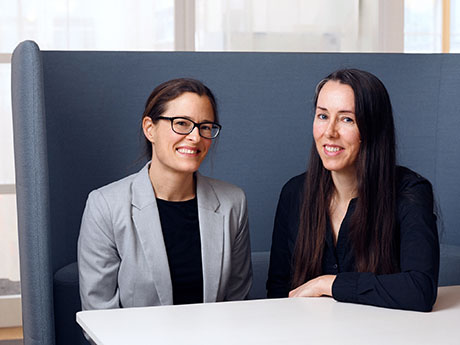- Home
- News and events
- Find news
- New Research Project focusing on Women's Health and Welfare in India and Africa
New Research Project focusing on Women's Health and Welfare in India and Africa

Teenage marriages, intimate partner violence and female genital cuttings are the result of unequal conditions and norms that negatively affect women in many countries. In a new research project, economists Annika Lindskog and Heather Congdon Fors, at the University of Gothenburg and Ann-Sofie Isaksson, Örebro University, will study women's health and welfare conditions.
How will you conduct this study?
"We will primarily use existing data to study first how the concerned behaviors are transmitted in the family and across generations. Thereafter we will study whether it is possible to break the intergenerational persistence with policy interventions. We will study two types of interventions: aid financed development projects in Africa and conditional cash transfer programmes in India", says Annika Lindskog and Heather Congdon Fors.
Why will you focus on Africa and India?
"The difference in opportunities between women or girls and men or boys are particularly stark in India, not the least reflected in the skewed sex ratios, which depends on girls not being born, but also on the excessive mortality among girls and women compared to in other countries. This is the reason behind the girls’ targeted conditional cash transfers programs that we will study. The conditions can be anything from a girl being born to her remaining unmarried until age 18."
"Africa is the poorest continent. Even if the differences between the sexes does not show up as clearly in statistics as for India, women have the worst opportunities. The combination of disadvantageous norms for women and disadvantages economic conditions make African women vulnerable."
Who is the most important audience for your study?
"We hope to reach policy makers, primarily those who can influence the design of programmes and projects that aim to improve women’s situations. We hope that our results can provide insights about the types of projects with the best possibilities to reach the women who have worst conditions from home."
"We also aim to reach the scientific audience. In particular, the relationship between norms and economic incentives is something that we know little about and we hope to contribute to a better understanding," says Annika Lindskog and Heather Congdon Fors.
The project Women’s health and welfare – inequality of opportunity, norms and possibilities for change has been funded by Ragnar Söderbergs stiftelse (5 MSEK) for a period of four years.
More about the project on the website of Ragnar Söderbergs stiftelse